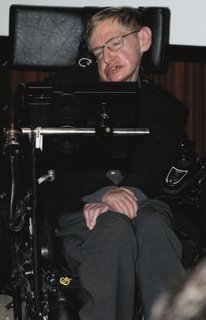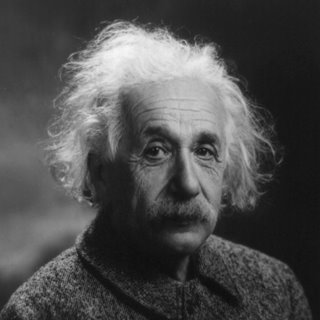Sunday, July 29, 2012
Mobile Live TV
Tags:mobile live streaming,mobile live streaming Tv, mobile live tv sites, android live tv rtsp link how to create live tv rtsp link ipl 5 live,Live TV, Mobile Live TV,android live tv rtsp link how to create live tv rtsp link ipl 5 live
Watch Live TV on Your PC For Free and Mobile
-aajtak
rtsp://ss1c6.idc.mundu.tv:554/prf0/cid_4.sdp
- times now
rtsp://ss1c6.idc.mundu.tv:554/prf0/cid_2.sdp
-headlines today
rtsp://ss1c6.idc.mundu.tv:554/prf0/cid_7.sdp
-ndtv 24*7
rtsp://ss1c6.idc.mundu.tv:554/prf0/cid_29.sdp
- ndtv profit
rtsp://ss1c6.idc.mundu.tv:554/prf0/cid_31.sdp
- ndtv goodtimes
rtsp://ss1c6.idc.mundu.tv:554/prf0/cid_32.sdp
- ndtv india
rtsp://ss1c6.idc.mundu.tv:554/prf0/cid_33.sdp
-cnbc awaaz
rtsp://ss1c6.idc.mundu.tv:554/prf0/cid_34.sdp
- cnbc Tv18
rtsp://ss1c6.idc.mundu.tv:554/prf0/cid_35.sdp
- zee business
rtsp://121.244.145.226:554/prf0/cid_45.sdp
- zee marathi
rtsp://121.244.145.226:554/prf0/cid_38.sdp
-zee tv
rtsp://121.244.145.226:554/prf0/cid_41.sdp
- zee regional
rtsp://121.244.145.226:554/prf0/cid_50.sdp
- zee regional
rtsp://121.244.145.226:554/prf0/cid_52.sdp
- zee regional
rtsp://121.244.145.226:554/prf0/cid_54.sdp
- zee regional
rtsp://121.244.145.226:554/prf0/cid_55.sdp
- ten action
rtsp://121.244.145.226:554/prf0/cid_61.sdp
- etc
rtsp://121.244.145.226:554/prf0/cid_62.sdp
- zing
rtsp://121.244.145.226:554/prf0/cid_65.sdp
-zee classic
rtsp://121.244.145.226:554/prf0/cid_57.sdp
zee smile
rtsp://121.244.145.226:554/prf0/cid_58.sdp
Watch Live TV on Your PC For Free and Mobile
Watch Live TV on Your PC For
Free
with the help of VLC player
Watch Live TV on Your PC For Free
Step 1 : First of all you need to have VLC player, if you don’t have VLC player kindly download and install it
Step 2 : Now open Vlc Player, and select streaming option from the media menu present in the menu bar.
Step 3 : Select network option and enter the url of the streaming channel.
For example :
if you want to view B4u Music you need to add url rtsp://217.146.95.166:554/ playlist/ch12zqcif.3gp in the url field and then select play option from the stream drop down menu.
Step 4 : After you click play in the above step, the channel will start streaming and you can watch your favorite channels.
Here is the List of many other channels which you will love to watch Channel links are below you can watch here or copy and save it for future :
Free
with the help of VLC player
Watch Live TV on Your PC For Free
Step 1 : First of all you need to have VLC player, if you don’t have VLC player kindly download and install it
Step 2 : Now open Vlc Player, and select streaming option from the media menu present in the menu bar.
Step 3 : Select network option and enter the url of the streaming channel.
For example :
if you want to view B4u Music you need to add url rtsp://217.146.95.166:554/ playlist/ch12zqcif.3gp in the url field and then select play option from the stream drop down menu.
Step 4 : After you click play in the above step, the channel will start streaming and you can watch your favorite channels.
Here is the List of many other channels which you will love to watch Channel links are below you can watch here or copy and save it for future :
FOR RK NEWS
RAJ News
FOR ETV
FOR Studio N
FOR SVBC
For Zoo Vision
For B4u Music
For iMusic
For Zee Tamil
rtsp://121.244.145.226:554/prf1/cid_54.sdp
WATCH NOW
For Zee Kannad
rtsp://121.244.145.226:554/prf1/cid_55.sdp
WATCH NOW
WATCH NOW
For Zee Kannad
rtsp://121.244.145.226:554/prf1/cid_55.sdp
WATCH NOW
For Zee Bangla
For Music Box
For Bella Tv
rtsp://217.146.95.166:554/playlist/ch29yqcif.3gp
WATCH NOW
WATCH NOW
For Fashion Tv
For Adventure
rtsp://video3.multicasttech.com/AFTVAdventure3GPP296.sdp
WATCH NOW
WATCH NOW
FOR Horror
rtsp://video2.multicasttech.com/AFTVHorror3GPP296.sdp
WATCH NOW
WATCH NOW
FOR Comedy
rtsp://video3.multicasttech.com/AFTVComedy3GPP96.sdp
WATCH NOW FOR Classic
For Crime
For Mystery
For Clubbing Tv
rtsp://217.146.95.166:554/playlist/ch21yqcif.3gp
WATCH NOW
WATCH NOW
Sunday, July 15, 2012
Albert Einstein
Albert Einstein
Einstein is the great scientist of the twentieth century and notable physicist of all time. It is told that he had learning disability in his childhood. He could not talk till he was three and could not read till he was eight. Despite such problems he later became the noble prize winner for his contribution to the Physics. His theory of relativity is considered as a revolutionary development of Physics. He got Noble Prize in Physics in 1921 for his explanation of the Photoelectric Effect and for his research in Theoretical physics.
Stephen Hawking
Stephen Hawking
This famous scientist is considered as the greatest scientist of the twentieth century after Einstein. Haw king’s big bang theory and black hole theory has turned the attention of the world. He is the professor of Mathematics of the University of Cambridge. Though he is now about to be paralyzed, he is teaching through a computer supported a machine by which his world are compiled. His physical illness could not make him stop form his research. His famous book is “A Brief History of Time”.

Galileo Galilei
Galileo Galilei
Galileo is considered as one of the greatest contributor to the development of Science. It is undoubtedly true that Galileo could first helped science to come out of the trend of Aristotle. He was physicist, astronomer, and philosopher and his best known contributions lie in the development of Telescope, first two laws of motion and also in Astronomy. He is also considered as the father of astronomy, father of physics and father of science.
He was born to a mathematician and musician father Vincenzo Galilei and his mother was Giulia Ammannati in Italy. He was taught form his very early life. He was the first scientist who followed the way of quantitative experiments in his research where the result was based on mathematics. He had to suffer a lot from the church for his theories.
Sir Isaac Newton
Sir Isaac Newton
Newton was also a man of versatile quality. He was physicist, mathematician, astronomer, alchemist, and natural philosopher in a row. His contribution in the development of science is a special one. He I best known for his explanation of Universal Gravitation and three laws of motion, and he was able to prove that the reason of both the motion of objects on Earth and of celestial bodies are controlled by the same Neutral laws. These findings could make a revolutionary change in the development of science. In mechanical science his great contribution was in optics. He could make a reflecting telescope. He also made some research on light and stars. His research on General binomial Theorem helped to be introduced today’s Calculus.
Newton was born to a farmer family but before three months of his birth his father died and then he was brought up to his maternal grandmother as her mother remarried. Newton could show his talent from his early life in The King’s School in Grantham and later he joined to the Cambridge University where he took his higher degrees.
Great philosopher -Aristotle
Aristotle
Aristotle is the Great philosopher who had a vast knowledge in different disciplines. Studying different subject he contributed a lot in each of those subjects. He contributed in physics, poetry, zoology, logic, rhetoric, politics, government, ethics, and biology. This laurel Greek philosopher was born in Stagira in 384 BC. His father Nicomachus was a physician to the king Amyntas III of Macedon’s court and it is believed that their ancestors also held this position. Earlier in his life he was taught by his father at home and the medical knowledge he got from his father led him to investigate natural phenomenon later on. At the age of 18 he admitted in to the young Greek aristocracy run by Plato, another Great Greek philosopher, and Aristotle became the most favorite student of Plato.
As a scientist Aristotle made a good contribution which was very influential for the development of the science over the year. Mainly he spent most of his life researching the natural science and he did the researches without making reference to the Mathematics which was later proven as the weakness of his research by the scientists. His natural science oriented research includes botany, zoology, physics, astronomy, chemistry, and meteorology, geometry and many more. He was also the teacher of the Great warrior Alexander the Great. This great philosopher died n 322 BC.

Robert Hooke Father of Microscopy
Tags:robert hooke achievements,Robert Hooke Father of Microscopy,robert hooke achievements,robert hooke inventions,robert hooke cell theory,
Robert Hooke Father of Microscopy
Date of Birth-Death :(1635-1703)
Country of Birth :UK
Major Discoveries :
The Cell: first person to coin the word 'cell' to describe the basic unit of life
Defined Hooke's Law: Provided the elastic limit is not exceeded, the deformation of a material is proportional to the force applied to it.
Extinction: two hundred and fifty years before Darwin, he realized the true nature of fossils.
Inventions: invented the wheel barometer, Gregorian telescope and greatly improved the compound microscope.
Jupiter: discovered the red spot of Jupiter and was the first person to report the rotation of this giant planet.
Telegraphy: invented a method of telegraphy based on telescopes and proportional signs in the 17th century!
Underwater: invented a diving bell.
Architecture: played a major role in the re-building of London after the Great Fire of 1665. Designed several buildings, one surviving example is Willen Church in Buckinghamshire.
Inventions: invented the wheel barometer, Gregorian telescope and greatly improved the compound microscope.
Jupiter: discovered the red spot of Jupiter and was the first person to report the rotation of this giant planet.
Telegraphy: invented a method of telegraphy based on telescopes and proportional signs in the 17th century!
Underwater: invented a diving bell.
Architecture: played a major role in the re-building of London after the Great Fire of 1665. Designed several buildings, one surviving example is Willen Church in Buckinghamshire.
Writing by the Scientist :Micrographia(1665)
Inventor, physicist, surveyor, astronomer, biologist, artist…Robert Hooke was all these and more. Some say he was the greatest experimental scientist of the seventeenth century. In the course of his work, he collaborated with renowned men of science like Christian Huygens, Antony van Leeuwenhoek, Robert Boyle, Isaac Newton and the great architect, Christopher Wren. Hooke's early education began at home, under the guidance of his father, a curate (priest). He entered Westminster School at the age of thirteen, and from there went to Oxford, where he came in contact with some of the best scientists in England. Hooke impressed them with his skill at designing experiments and devising instruments. In 1662, at the age of 28, he was named Curator of Experiments of the newly formed Royal Society of London -- meaning that he was responsible for demonstrating new experiments at the Society's weekly meetings. Hooke accepted the job, even though he knew that the Society had no money to pay him! Watching living things through the microscope was one of his favorite occupations. He devised a compound microscope for this purpose. One day while observing a cork under a microscope, he saw honeycomb-like structures. They were cells- the smallest units of life. In fact, it was Hooke who coined the term "cell" as the boxlike cells of the cork reminded him of the cells of a monastery. Perhaps because of his varied interests, Hooke often left experiments unfinished. Others took up where he left off and then claimed sole credit. This sometimes led to quarrels with colleagues. One work that he finished was his book MICROGRAPHIA, a volume that reveals the immense potential of the microscope. It contains fascinating drawings of the things he saw under the microscope. The book also includes, among other things, ideas on gravity, light and combustion that may have helped scientists like Newton while they were developing their own theories on these phenomena. Hooke made valuable contributions to astronomy too. A crater on the moon is named after him in appreciation of his services to this branch of science.
Subscribe to:
Comments (Atom)




